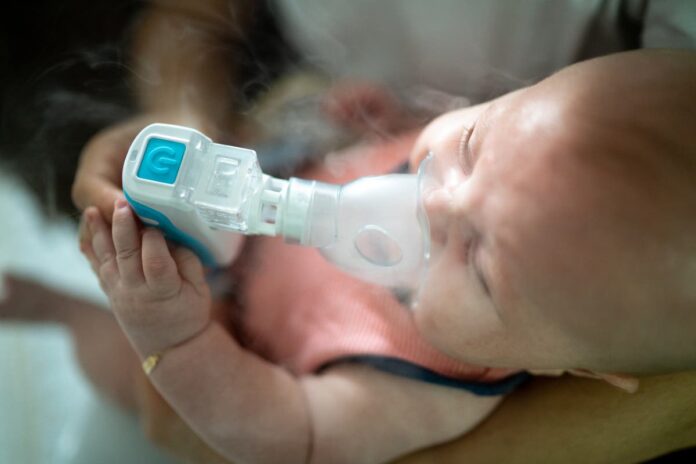Pregnant women exposed to air pollution are likely to give birth to smaller babies, a study warns. Research that will be presented at the European Respiratory Society International Congress in Milan, Italy – shows that women living in greener spaces give birth to bigger babies and this may help counteract the effects of pollution. Children who are born smaller and have a lower birthweight can have weaker lungs and face a higher risk of asthma and higher rates of chronic obstructive pulmonary disease (COPD) as they grow older. Scientists say that there is an urgent need to decrease air pollution and make urban areas greener to better protect infants from potential harm. The recent study is based on data from the Respiratory Health in Northern Europe (RHINE) study, which looked at 4,286 children and their mothers living in five European countries. The countries were Denmark, Norway, Sweden, Iceland and Estonia. Researchers looked at the ‘greenness’ in the area where the mothers lived by analysing satellite images of vegetation density, including forests, farmland, and urban parks. The study also analysed data on five pollutants, which were nitrogen dioxide (NO2), ozone, black carbon (BC), and two types of particulate matter – PM2.5 and PM10. All average air pollution levels were within the limits set by the European Union. After gathering the information, researchers then compared it with the babies’ birthweights. The team also looked at other variables that are known to affect birthweight, such as the mother’s age, and whether the mother smokes or has any other health conditions. The team of researchers discovered that higher levels of air pollution were linked with lower birthweights. This was specific with PM2.5, PM10, NO2, and BC were linked to average weight reductions of 56g, 46g, 48g, and 48g, respectively. Access unlimited streaming of movies and TV shows with Amazon Prime Video Sign up now for a 30-day free trial Sign up Access unlimited streaming of movies and TV shows with Amazon Prime Video Sign up now for a 30-day free trial Sign up However, when researchers took the levels of greenness into account, the effects of air pollution on birthweight decreased. ‘The time when babies are growing in the womb is critical for lung development. We know that babies with lower birthweight are susceptible to chest infections, and this can lead to problems like asthma and COPD later on,’ Mr Robin Mzati Sinsamala, a researcher in the Department of Global Public Health and Primary Care at the University of Bergen (UiB), Norway said. He added: ‘Our results suggest that pregnant women exposed to air pollution, even at relatively low levels, give birth to smaller babies. They also suggest that living in a greener area could help counteract this effect. It could be that green areas tend to have lower traffic or that plants help to clear the air of pollution, or green areas may mean it’s easier for pregnant women to be physically active.’ European Respiratory Society Advocacy Council Chair, Professor Arzu Yorgancioğlu, who was not involved in the research, said the study shows the ‘growing body of evidence’ of the damage air pollution can cause to humans, ‘especially in vulnerable babies and young children.’ ‘Women who are pregnant will want to protect their babies from potential harm. However, as individuals, it can be difficult to reduce our exposure to air pollution or make our neighbourhoods greener.’ According to a recent report from Unicef, more than 5,800 children and teenagers in Europe and Central Asia died in 2019 from causes related to air pollution. The majority– 85 per cent – died before their first birthday, the equivalent of 90 babies a week, according to a new data analysis featured in a policy brief published on 5 September. ‘When it comes to air pollution, the tiniest lungs carry the heaviest burden, wreaking havoc on children’s health and development, sometimes costing them their lives,’ said Regina de Dominicis, UNICEF Regional Director for Europe and Central Asia. ‘Reducing air pollutants and children’s exposure to toxic air is critical to protecting their health and their societies, leading to reduced health care costs, improved learning, increased productivity and a safer, cleaner environment for all.’
Mothers exposed to air pollution give birth to smaller babies, study finds
Sourceindependent.co.uk
RELATED ARTICLES


